An encounter with one of the world’s most venomous snakes in an Australian desert: what more could a reptile enthusiast want?​​​

IMAGINE THAT YOU’RE A passionate surfer. You talk about surfing to anyone who’ll listen; read every surfing book and magazine you can nd; spend all your spare time travelling in search of the best waves. Now, translate that enthusiasm into finding and photographing reptiles in the wild and you’ll begin to understand the passion that I have for these animals. It’s this enthusiasm that led fellow wildlife photographer Tim Squires and me on an expedition into the remote Great Victoria Desert, about 1500km inland from Perth, where we hoped to nd and photograph the western desert taipan (Oxyuranus temporalis).
Most Australians would have heard of taipans because these reptiles are among the world’s most infamous snakes and Australia is home to all three known species. These are the notorious coastal taipan, which is also found in southern New Guinea; the inland taipan, sometimes known popularly as the fierce snake and believed to have the most toxic venom of any land snake; and the recently described western desert taipan.
They are all formidable snake species, possessing large fangs, extremely potent venom and an agility that demands the utmost respect from even the most experienced of snake handlers. Returning to the surfing analogy, photographing taipans is like big-wave riding – succeed, and you won’t remember a happier moment; get it wrong and it may cost you your life.
Tim knows about this better than most. It’s almost a year since our last taipan expedition, during which he nearly died after being bitten by an inland taipan. It’s an ordeal neither of us is eager to repeat.
But where there’s risk, there’s reward, and, for me, there’s no greater reward than seeing these wild places and animals with my own eyes.
Esta historia es de la edición May - June 2018 de Australian Geographic Magazine.
Comience su prueba gratuita de Magzter GOLD de 7 días para acceder a miles de historias premium seleccionadas y a más de 9,000 revistas y periódicos.
Ya eres suscriptor ? Conectar
Esta historia es de la edición May - June 2018 de Australian Geographic Magazine.
Comience su prueba gratuita de Magzter GOLD de 7 días para acceder a miles de historias premium seleccionadas y a más de 9,000 revistas y periódicos.
Ya eres suscriptor? Conectar
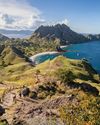
SULAWESI SENSATIONS
There are worlds within worlds and marvels untold waiting to be experienced on Indonesia's remote islands.
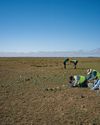
SEARCHING FOR AUSSIE DINOSAURS
Our understanding of where to find ancient life in Australia has been turned on its head by a new appreciation of the country's geology. Now the world is looking to our vast outback as the latest hotspot to locate fossils.
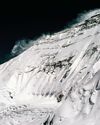
THE HARDEST NIGHT
The first Australian ascent of Mt Everest in 1984 is one of the great feats of mountaineering. Climbed by a small team semi-alpine style, with no bottled oxygen, via the Great (Norton) Couloir, it remains unrepeated 40 years later.
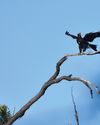
WEDGE-TAILED WONDER
The chance discovery of an eagle nest leads to an extended vigil observing normally hidden behaviours of one of nature's supreme winged marvels.
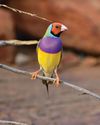
BURDENED BY BEAUTY
Northern Australia's Gouldian finch survives in huge numbers in cages around the world, but its wild population continues to struggle.
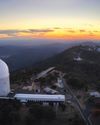
A TELESCOPE FOR A GOLDEN AGE
After a stellar 50 years as one of the country's major scientific assets, the AAT continues to play a major role in keeping Australian astronomy on the world stage.
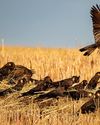
COCKY WHISPERING AT COOMALLO CREEK
This patch of remnant bush on the edge of the West Australian wheatbelt is a place loved by one of Australia's rarest bird species and the man who has studied the site for more than 50 years.

A PIONEERING PAIR
Louisa Atkinson and her mother, Charlotte, were among Australia's earliest authors, and pioneers in women's rights.
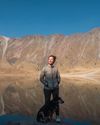
THE LONGEST WALK
Lucy Barnard is walking from Argentina to Alaska -the length of the Americas - on an extraordinary journey of endurance and adventure.
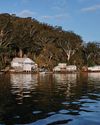
SECLUDED, BUT NOT ALONE
In an era of heightened social isolation, where many of us lead lonely lives, Dangar Island offers the chance to be part of a supportive, connected community.